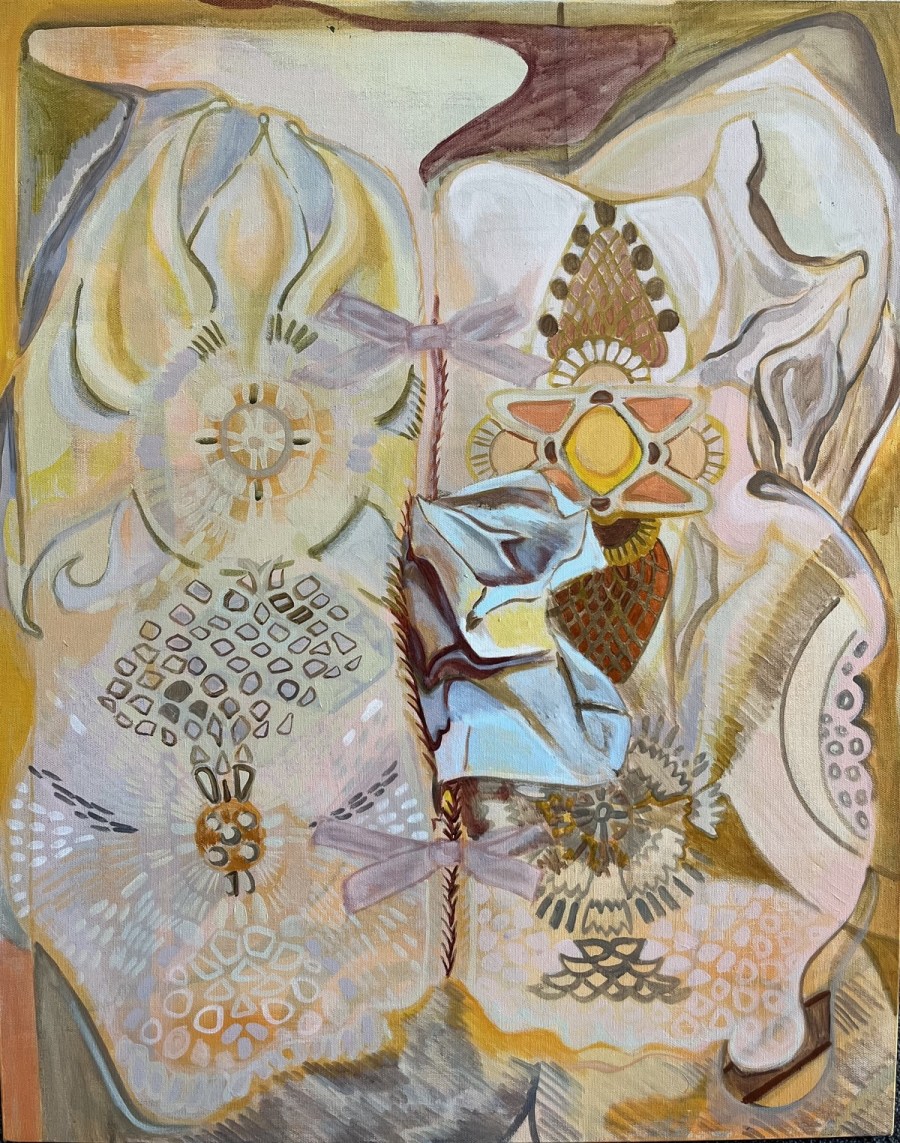
Prognosis
By Richie Zaborowske
Featured Art: “Frills” by Alex Brice
Afraid that her husband Clint would find out, Debra began withdrawing cash out of their savings account and hiding the money in a wool sock in her underwear drawer. She got herself a divorce lawyer, a good one from one of those law firms with three last names. After searching around online, she found a landlord who, after she placed two months’ rent down as a deposit, didn’t ask too many questions. Then, when she finally had everything in place, when the only thing left was for her to find the courage to tell Clint she was leaving, on his way home from happy hour at Smitty’s Tap, Clint blew a stop sign and rammed his Ford F-150 into the side of a milk truck.
A police officer told her about the accident. Knocking on her door as Debra was dumping a pot of spaghetti noodles into a colander in the kitchen sink. Clint had never been to jail. But he was no stranger to law enforcement. So, she wasn’t exactly surprised when she opened the door and a police officer was standing on her porch.
“Your husband’s been in a wreck,” the officer said, in one breath, as if he had been running. The officer was young; cropped haircut, big ears. Haltingly, he explained that Clint was in a coma. Showed her a picture of the scene on his phone; the side of Clint’s truck crumpled like tinfoil; a blast of glass strewn across the road.
Read More








